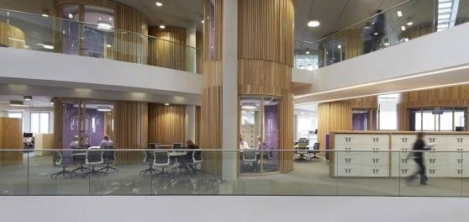January 23, 2015
The new weekly issue of Insight is now available to view online
 In this week’s issue: Colin Watson looks back on yet another year of dramatic workplace change and predicts we ain’t seen nothin’ yet; Mark Eltringham explores the complex nature of happiness and motivation; the BBC gets a shoeing from MPs for the running costs of its estate; the world’s taste for skyscrapers shows no signs of abating; bullying at work remains a blind spot for many managers; Paul Goodchild calls for more human centred design in office receptions; London’s thriving property market means available space comes at a premium and Sara Bean finds how flexible working is increasingly important for an aging workforce. Sign up to the newsletter via the subscription form in the right hand sidebar and follow us on Twitter and join our LinkedIn Group to discuss these and other stories.
In this week’s issue: Colin Watson looks back on yet another year of dramatic workplace change and predicts we ain’t seen nothin’ yet; Mark Eltringham explores the complex nature of happiness and motivation; the BBC gets a shoeing from MPs for the running costs of its estate; the world’s taste for skyscrapers shows no signs of abating; bullying at work remains a blind spot for many managers; Paul Goodchild calls for more human centred design in office receptions; London’s thriving property market means available space comes at a premium and Sara Bean finds how flexible working is increasingly important for an aging workforce. Sign up to the newsletter via the subscription form in the right hand sidebar and follow us on Twitter and join our LinkedIn Group to discuss these and other stories.









 A report published at the end of December
A report published at the end of December














December 3, 2014
It’s no surprise a third of homeworkers choose to work in their pyjamas
by Sara Bean • Comment, Facilities management, Flexible working, News, Technology, Workplace